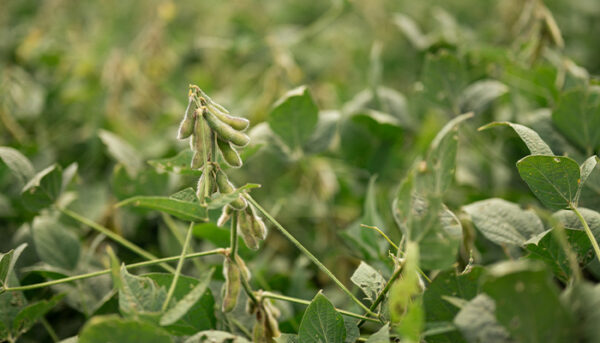Improving Soybean Protein Quality Through Genetic and Environmental Characterization
Evaluate genetic variation and environmental effects on amino acid composition in soybean breeding lines to identify stable, high-protein genotypes that meet the nutritional demands of feed and food markets.

Why This Research Is Important
- Soybeans are the leading global plant-based protein source, accounting for over 60% of global oilseed production and providing all eight essential amino acids.
- Amino acid balance is critical for monogastric animal feed (poultry, swine, aquaculture), but methionine and cysteine are often 2–3% lower than optimal, reducing feed efficiency.
- Breeding historically focused on yield and oil, often at the expense of protein quality, leaving a gap in optimized amino acid profiles.
- Environmental factors—such as temperature, soil nitrogen, and water availability—strongly influence amino acid composition, but the mechanisms are not well understood.
- Consistent, high-quality amino acid profiles are key to:
- Reducing the need for synthetic amino acid supplements
- Improving the global competitiveness of U.S. soybean meal
- Capturing premium pricing opportunities in feed and human food markets
- This research fills a critical gap by linking genetics, environment, and protein quality to breed soybeans that deliver stable, high-value amino acid profiles.
How This Research Benefits the Farmer
- Improves feed efficiency by enhancing the natural amino acid balance, reducing the need for costly supplements.
- Opens new premium markets for human food and high-quality feed, especially in the growing plant-based protein sector.
- Identifies varieties that consistently perform well across environments, giving farmers:
- More stable yields and protein quality
- Better marketability for both domestic and export markets
- Opportunities for premium pricing in specialty feed and food-grade markets
- Supports profitability and sustainability by:
- Increasing the baseline value of soybean meal
- Strengthening global competitiveness of U.S. soy
- Providing data-driven tools for variety selection and management decisions
- Positions farmers for future demand growth as global buyers and food companies seek high-protein, high-quality soy.
Research Team
- Dr. Eliana Monteverde, Assistant Professor, University of Illinois
Trial Locations
- Urbana, IL
- Orr Research Facility, Perry, IL
About the Lead Researchers

Dr. Eliana Monteverde
Assistant Professor
University of Illinois Urbana-Champaign
217-300-7658
elianam@illinois.edu
ARE YOU A FARMER OR ADVISOR?
If you’re a farmer or advisor, we invite you to take our Soybean Production Concerns Survey linked below to help guide future ISA research efforts. We also encourage you to contact us below with specific production challenge research ideas.
ARE YOU A RESEARCHER?
If you’re a researcher interested in working with ISA on a project, we encourage you to contact us with your ideas. The RFP will open in early March. Contact us below to be added to the mailing list for more information.


 and then
and then